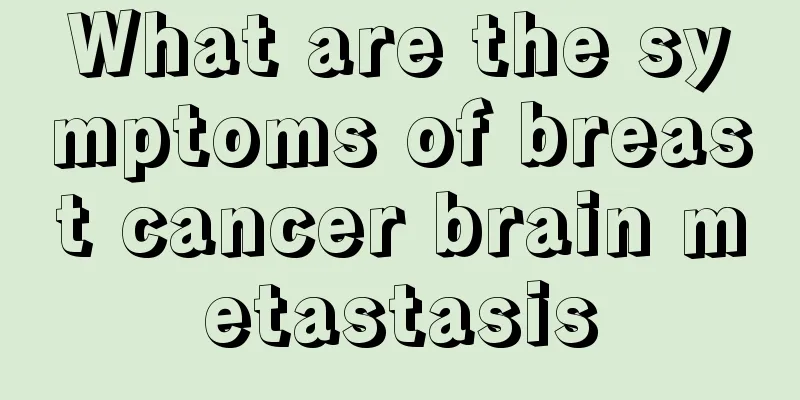Difficulty in defecation is like squeezing toothpaste

|
Both bowel movements and urine are related to human health, and the color and smoothness of daily bowel movements are also critical. I believe that many people have experienced difficulty or discomfort in defecation, and these situations are mainly related to constipation. It is recommended that you drink plenty of water in your daily life, and drink a glass of honey water or light salt water in the morning, so that your bowel movements will be smoother. At the same time, you should also pay attention to developing good living habits, go to bed early and don't stay up late. In this way, combined with dietary adjustments, the difficulty in defecation will gradually ease. Causes of difficult bowel movements Severe pain during defecation and blood on the toilet paper are the most likely causes, especially in young women with constipation. Most of them have anal fissures. If treated early and handled properly, ulcers will not form. During a gastric barium meal radiography, the stool is white. Take laxatives after the examination and your bowel movements will go smoothly. If you neglect this, you will suffer from severe constipation and feel very painful. Along with the sound of "ouch, ouch" when defecating, severe pain also comes from the anus, which is caused by the hard feces cutting the anus. Due to constipation, there may be a persistent hissing pain during bowel movements or between bowel movements. This condition is commonly known as incisional hemorrhoids, and is more accurately called anal fissure. If a young woman has a history of constipation and feels severe pain during defecation, the first thing to think of is anal fissure. During bowel movement, I felt as if my anus had split open. Once the anus is injured, the wound will expand a little every time hard stool is discharged, and the pain will be so severe that it will make people cry. Therefore, many people are afraid of going to the toilet. However, if they force themselves not to defecate at this time, the constipation will become more and more serious, which will in turn aggravate the anal fissure. As the anal fissure worsens, the pain will become more severe, which will further make them hate going to the toilet, creating a vicious circle. Compared with the pain, the amount of bleeding during anal fissure is relatively small, at most there will be blood stains on the toilet paper, but when combined with internal hemorrhoids, the amount of bleeding will increase. In any case, the pain is worst during bowel movements and will ease as soon as the bowel movement is completed. Although anal fissure is not considered serious, the initial treatment is very important. Many people think that as long as the pain is stopped, it will be fine. As a result, the condition recurs repeatedly and becomes chronic. Foods to relieve constipation To relieve dry stools, you must first confirm whether it is pathological constipation. If the cause is ruled out, you must then make symptomatic adjustments in your daily diet and lifestyle. A reasonable diet should include: eating whole grains without being picky, reducing meat intake, and eating more fruits, vegetables and other foods rich in fiber; you should also drink some yogurt containing probiotics. Mash potatoes (250 grams) and squeeze out the juice. Add appropriate amount of honey and take it on an empty stomach every morning. Beat 1 egg into 250g milk, cook until done, add appropriate amount of honey, and take once every morning. Walnut kernels and black sesame seeds (30 grams each) are mashed into a paste and taken with boiled water once a day on an empty stomach. Bananas (1-2), coated with honey, are eaten on an empty stomach every morning, followed by warm water (200-300 ml). Pumpkin (120g), cut into cubes, cook, add milk (400ml), put in a bottle, store in the refrigerator, drink once a day. Eat more long-fiber vegetables: such as celery, spinach, cabbage, leek and other vegetables. The crude fiber in long-fiber foods cannot be absorbed and forms residues in the intestines, which stimulate the intestinal wall, increase intestinal peristalsis, and make feces easier to excrete; eat more foods containing vitamin B1, such as coarse grains, wheat bran, beans, oats, lean meat and animal offal. |
<<: The simplest way to cook crabs
>>: What are the abdominal muscle fitness equipment
Recommend
How to treat patients with spleen deficiency
People nowadays are always busy with their work a...
What are the symptoms of insomnia due to Yin deficiency and internal heat?
Yin deficiency and internal heat is a common mani...
Why is there residue on lipstick
The color of a person's lips can reflect his ...
It only takes one minute to teach you how to cure all diseases
What can be done in one minute? You may feel that...
What to eat if you have cervical cancer
Early cervical cancer has little effect on digest...
How to train side abdominal muscles
I believe everyone knows that physical exercise i...
Does smoking affect intelligence?
Smoking is extremely harmful to the body and has ...
What is the correct way to take a sitz bath for hemorrhoids?
Hemorrhoids are a common disease at present. Most...
What to do if hallux valgus hurts
Many children have ugly feet since childhood. Som...
What is non-keratinizing nasopharyngeal carcinoma
Nasopharyngeal carcinoma is a very common cancer ...
What can't prostate cancer patients eat? The following three types of food should never be touched by prostate cancer patients
Most patients develop prostate cancer mainly due ...
9 steps from sneezing to cancer
From a normal, minor sneeze to developing into ca...
Is it effective to correct teeth at the age of 32
Many people have certain problems with their teet...
What to do if drinking hurts your stomach
It is often seen that people vomit, talk nonsense...
How to prevent uterine cancer
In recent years, uterine cancer has become one of...









